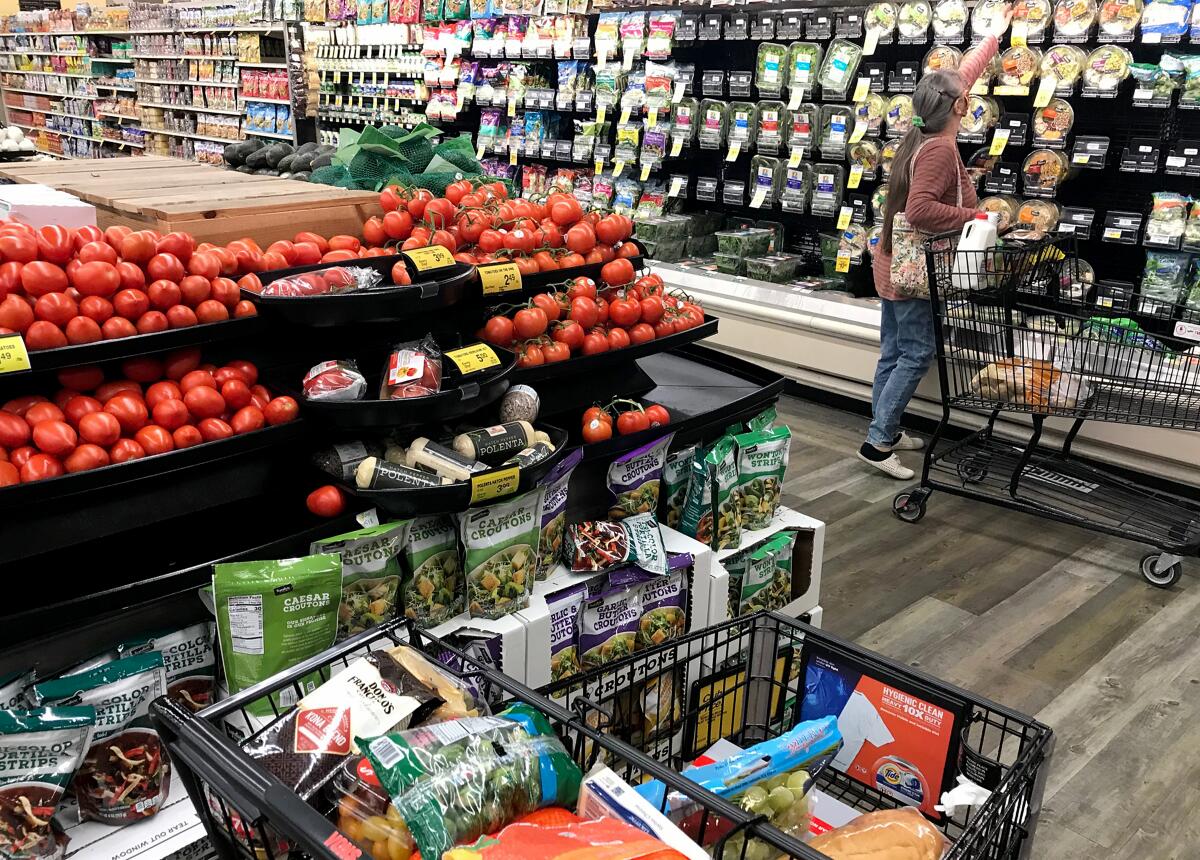California to become first state to offer food benefits to some immigrants who live in U.S. illegally

- Share via
SACRAMENTO — California is expected to be the first state to offer food benefits to immigrants residing in the U.S. illegally under a state budget plan revealed this week.
The unique policy fills in safety net gaps, as immigrants living in the U.S. without legal status are not eligible for federal benefits such as food stamps.
But the new program benefits only Californians older than 55, dismissing pleas by anti-poverty advocates to cover all ages.
“All Californians, regardless of their age or where they were born, should have access to basic necessities like food and fair, steady wages. Yet needless barriers continue to exclude hundreds of thousands of our neighbors and families from critical, lifesaving services,” said Sarah Dar, a policy director at the California Immigrant Policy Center.
The record-high state budget deal struck by Gov. Gavin Newsom and lawmakers includes $35.2 million to expand the state’s food assistance program to age-eligible residents “regardless of immigration status.” Funding for the new program is set to increase to $113.4 million annually in 2025-26.
Some lawfully residing immigrants are also excluded from federal food benefits, though California has provided state-funded assistance for that group, totaling 35,000 people, for decades.
The latest state budget extends the California Food Assistance Program to include immigrants older than 55 regardless of their immigration status. The new policy is estimated to benefit an additional 75,000 Californians each year, according to a report by the Legislative Analyst’s Office.
Advocates across the state have praised Newsom and Democratic lawmakers for leading the way nationally on a push for more assistance for immigrants in need who are living in the U.S. illegally, but they question the age cutoff.
According to a report released in April by Nourish California, a human rights and food access organization, nearly half of Californians without legal immigration status struggle with food insecurity, and the majority of those are adults ages 27 to 49.
“We’re absolutely grateful, but we know the need is greater, and many more immigrant Californians are in need of food assistance, especially right now,” said Betzabel Estudillo, a senior advocate with Nourish California, pointing to inflation and surging gas prices. “When you’re having a meal together with your family, everyone should have access to the meal.”
H.D. Palmer, spokesperson for Newsom’s Department of Finance, said in a statement Tuesday that targeting those 55 and older maximizes the “impact of the state’s investment” and is part of California’s master plan on aging. The move is similar to other gradual age-based policies led by Newsom, including the expansion of Medi-Cal coverage for income-eligible Californians regardless of their immigration status.
Donna Yerat-Rodriguez grew up eligible for programs like CalFresh, as she was born in the U.S, but her mother, who immigrated illegally from Guadalajara, Mexico, was not.
“There were days where me and my younger sister would go to school on an empty stomach because we had to proportion the amount of food that we’d be able to buy,” she said. “We would resort to having one meal a day instead of having three.”
Her mother remains ineligible for the new food benefit program because she is 43.
“It definitely is very disheartening to think that my mom was one person who is still excluded, which is why I think that there is a very big need for this to be expanded to people of all ages,” she said.
More to Read
Sign up for Essential California
The most important California stories and recommendations in your inbox every morning.
You may occasionally receive promotional content from the Los Angeles Times.















